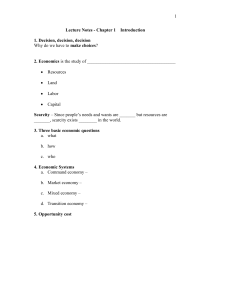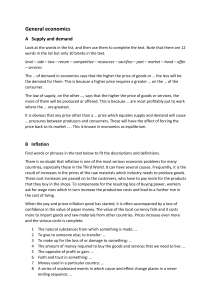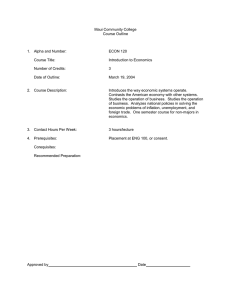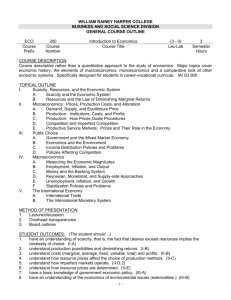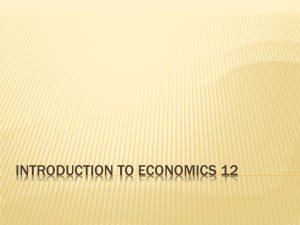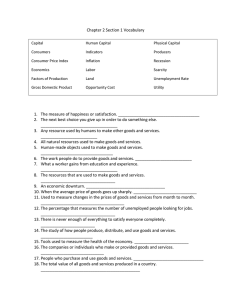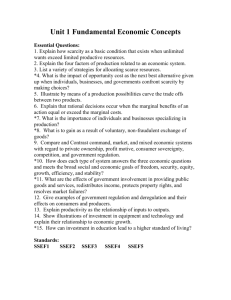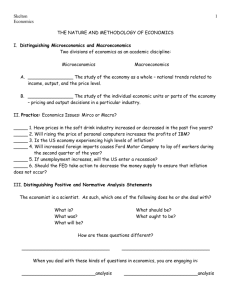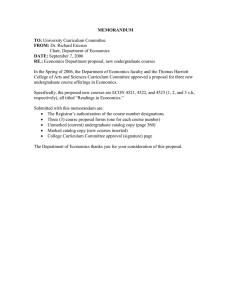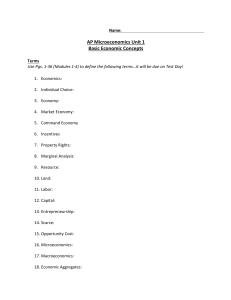Student Learning Outcomes
advertisement
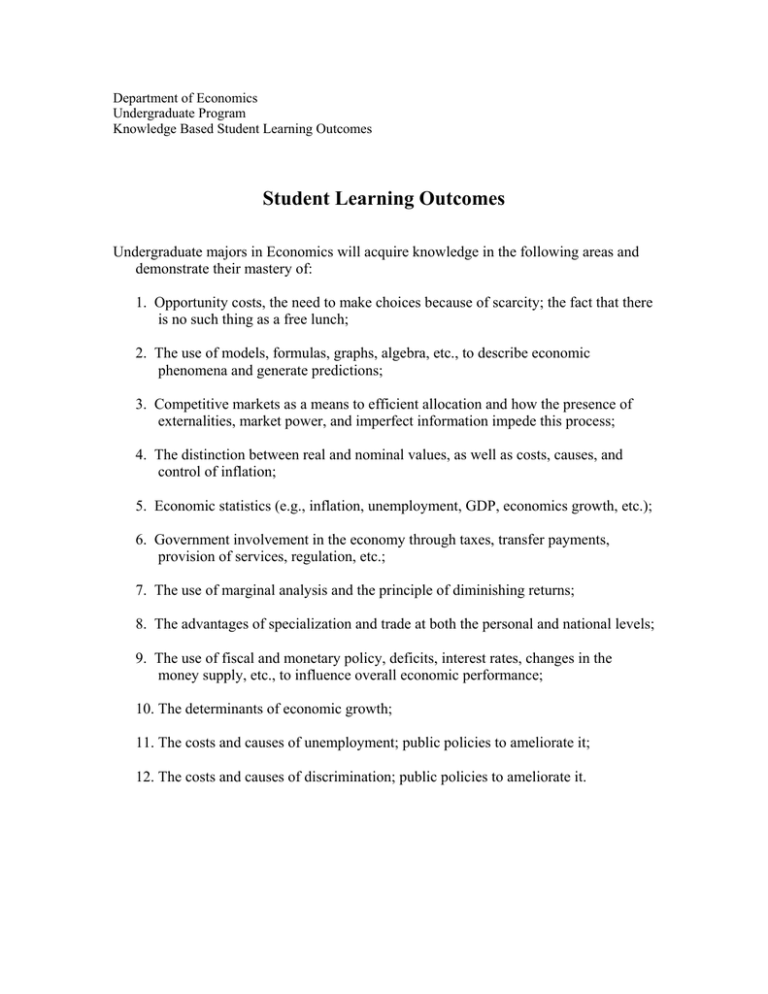
Department of Economics Undergraduate Program Knowledge Based Student Learning Outcomes Student Learning Outcomes Undergraduate majors in Economics will acquire knowledge in the following areas and demonstrate their mastery of: 1. Opportunity costs, the need to make choices because of scarcity; the fact that there is no such thing as a free lunch; 2. The use of models, formulas, graphs, algebra, etc., to describe economic phenomena and generate predictions; 3. Competitive markets as a means to efficient allocation and how the presence of externalities, market power, and imperfect information impede this process; 4. The distinction between real and nominal values, as well as costs, causes, and control of inflation; 5. Economic statistics (e.g., inflation, unemployment, GDP, economics growth, etc.); 6. Government involvement in the economy through taxes, transfer payments, provision of services, regulation, etc.; 7. The use of marginal analysis and the principle of diminishing returns; 8. The advantages of specialization and trade at both the personal and national levels; 9. The use of fiscal and monetary policy, deficits, interest rates, changes in the money supply, etc., to influence overall economic performance; 10. The determinants of economic growth; 11. The costs and causes of unemployment; public policies to ameliorate it; 12. The costs and causes of discrimination; public policies to ameliorate it.
